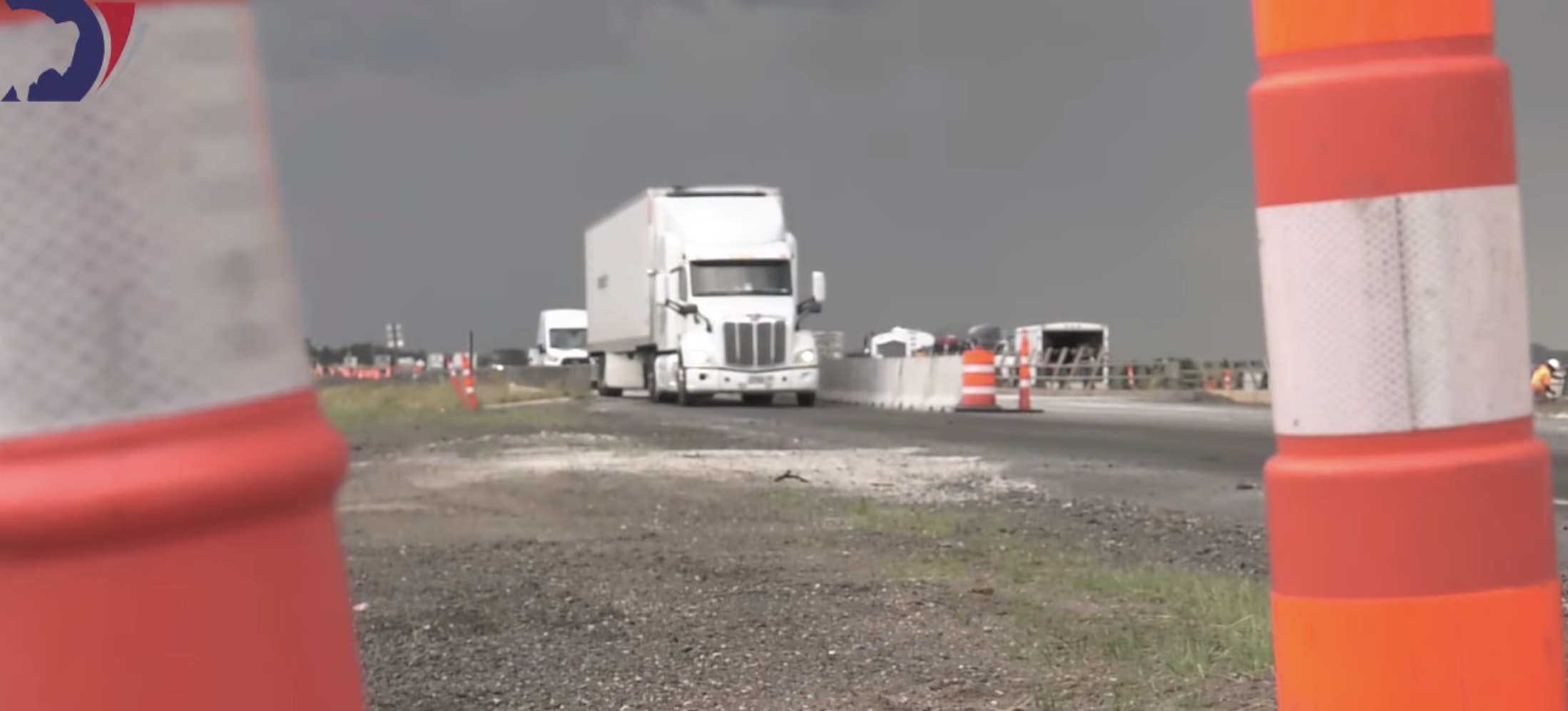A toll proposed for Interstate 80 traffic could help the Wyoming Department of Transportation reduce the $41.5 million yearly funding deficit for maintaining the corridor, but not everyone is on board.
The Legislature’s Joint Transportation, Highway and Military Affairs Committee reviewed the idea of tolling I-80 during its meeting in August.
“We have up to 19,000 vehicles driving I-80 in a 24-hour period, counting both ways, mostly between Green River and Rock Springs,” said Committee Chairman Sen. Michael Von Flatern, R-Gillette. “We’re spending approximately $60 million a year on that highway.”
A 2018 Wyoming Department of Transportation study reported the department spent about $182 million on construction and maintenance for the I-80 corridor from 2016 to 2018. In order to simply maintain the highway’s current condition, WYDOT would need an additional $41.5 million annually. I-80 accounted for 62 percent of all Wyoming’s heavy truck traffic and about 20 percent of the state’s passenger vehicle traffic, the study found.
“The total funding to WYDOT from all sources has declined,” said Keith Fulton, the assistant chief engineer for WYDOT’s Engineering and Planning Division. “We’re seeing higher construction, labor and materials costs — if funding doesn’t change with those, you’re losing the strength to address those needs.”
While the details of a toll road have yet to be ironed out, Von Flatern said Wyoming residents wouldn’t pay a fee to drive I-80 under the plan examined by the committee.
“It won’t toll Wyoming-registered vehicles — it will only toll out-of-state vehicles,” he explained. “But, you can’t discriminate who you toll.”
Rather than charge vehicles registered in Wyoming, Von Flatern said the state would reimburse their owners for the toll cost, possibly with oil royalty income.
Opposition
For Sheila Foertsch, executive director of the Wyoming Trucking Association, charging only non-resident vehicles presents a problem.
“We have concerns about the current bill, because of the refund,” Foertsch said. “You must treat all trucking the same.”
In the past, the association did not oppose tolling studies proposed by Legislature or increases to registration fees and fuel tax, she said.
“We understand there is a need,” Foertsch said. “But the State of Wyoming already receives registration fees and fuel tax. We currently have the sixth-highest registration fees in the nation. These trucks are not just traveling through scot free.”
Furthermore, she said the association thinks a toll could significantly impact local economies along the corridor.
“Truckers will often avoid a toll road at all costs,” Foertsch explained.
Von Flatern said the tolling initiative received committee support, but only just.
“We’re a little worried about getting two-thirds vote,” he explained. “It only passed the transportation committee 7-6.”
During budget sessions of the Legislature, such as the 2020 session, any measure not related to the state’s budget must receive a two-thirds majority vote to even be considered.
Sen. Stephan Pappas, R-Cheyenne, said he voted against the initiative, but wasn’t entirely opposed to a toll road.
“Eight years ago, it was looked at and the sentiment of the committee was, ‘We studied enough, let’s go ahead with it,’” Pappas said. “And, I’m not good with that.”
WYDOT needs the money, he said, but there are other funding avenues that could be explored.
“I’m not against the idea of tolls, but I think there are other and better ways of collecting funds that are more user friendly and easier to administer,” Pappas said. “We should look at increasing fuel tax, vehicle registration, weight fees, license fees and weight distance taxes. Everything should be on the table.”
Pappas said he is drafting a bill for the 2020 session to create a task force to look at all possibilities of revenue generation for the I-80 corridor.
“I do understand this will be a study first, but frankly, I’m not ready to the spend the money on the study,” Pappas said. “I’d rather spend money on a task force to determine whether tolling is the best road to go down.”
Small request, big ask
Typically, when a state creates a toll on a road, it is required to pay back all the federal funding it received for that road, but Von Flatern said that wouldn’t be the case here.
The Federal Highway Administration is conducting a pilot program that could allow Wyoming to create a toll road without paying back any money, he explained. The Interstate System Reconstruction and Rehabilitation Pilot Program allows a state to collect tolls in order to reconstruct or rehabilitate an interstate corridor that could not otherwise be adequately maintained or functionally improved without the collection of tolls, according to the committee’s issue brief.
Up to three facilities could participate in the program, and each must be located in a different state.
“All we’re asking for now is to put our name in with the federal tolling programs,” Von Flatern said.
If approved, the process could take a decade or more to produce an actual toll road. Von Flatern said the earliest guesses put the toll road creation somewhere around 2029 if no hiccups are encountered.
This isn’t the first time Von Flatern put forth a tolling initiative. In 2010, Senate File 35 proposed granting the Wyoming Transportation Commission authority to create a tolling program. While the bill cleared the Senate, it was killed by the House Transportation Committee.
“It can keep coming back,” Von Flatern said. “We have to do something, because WYDOT is losing the battle in taking care of all our roads.”
If WYDOT does not receive additional funding for I-80 maintenance and improvement, Fulton said the highway could begin to deteriorate.
“We may have to pull more money from other places or live with a little less condition than it is now,” he explained. “We’ll always make sure the road is safe, but we might be able to plow it a little less, and it will degrade over time.”





